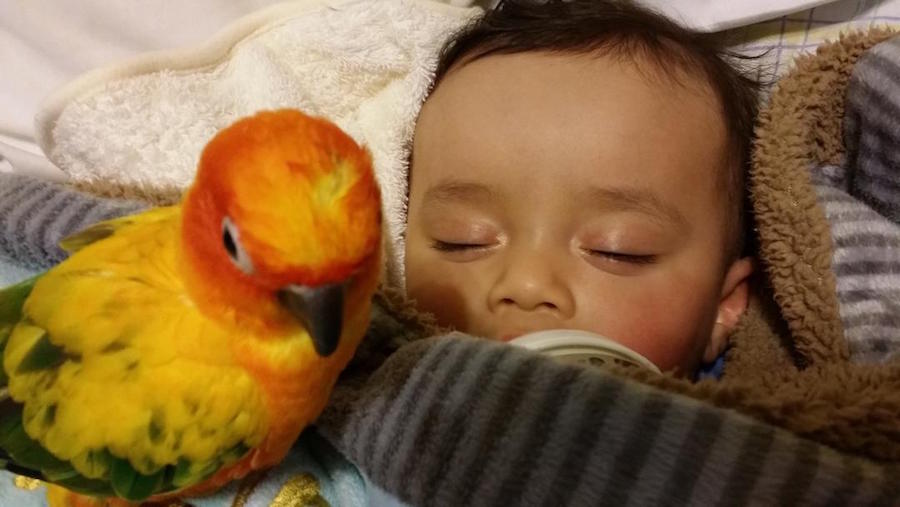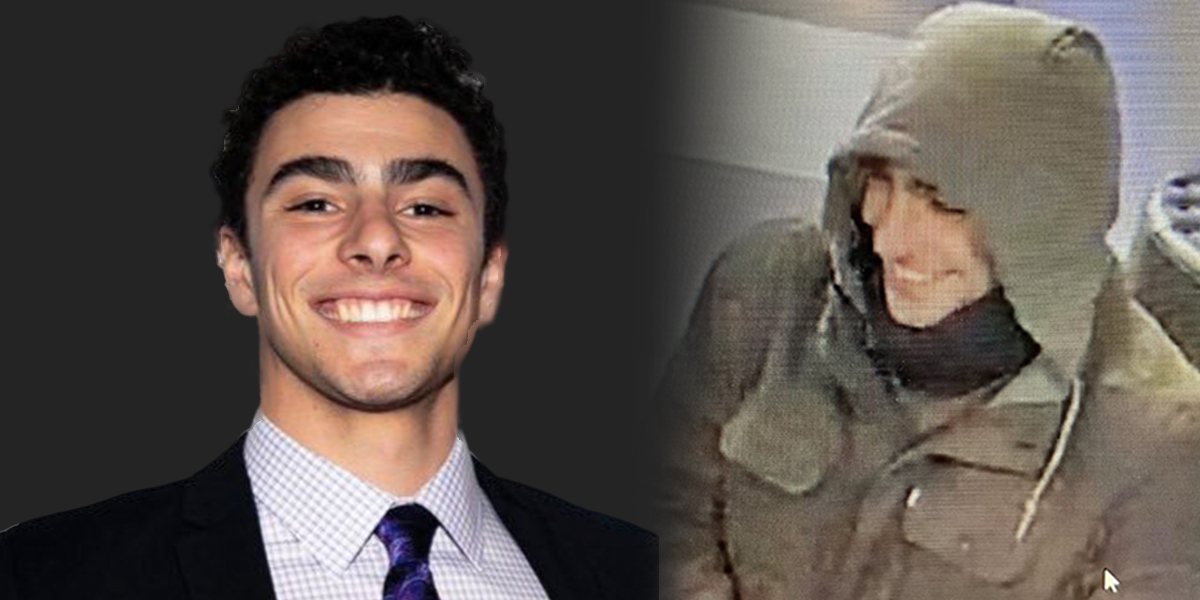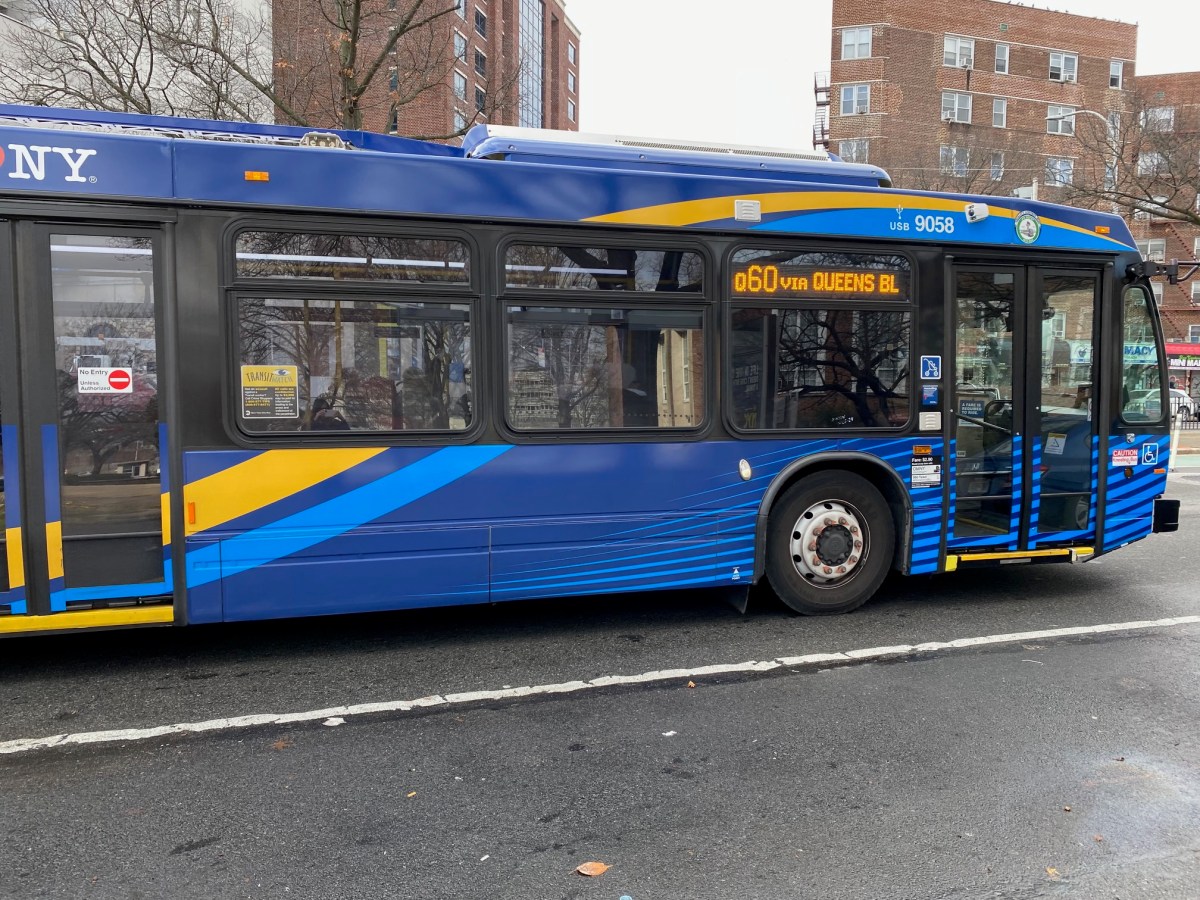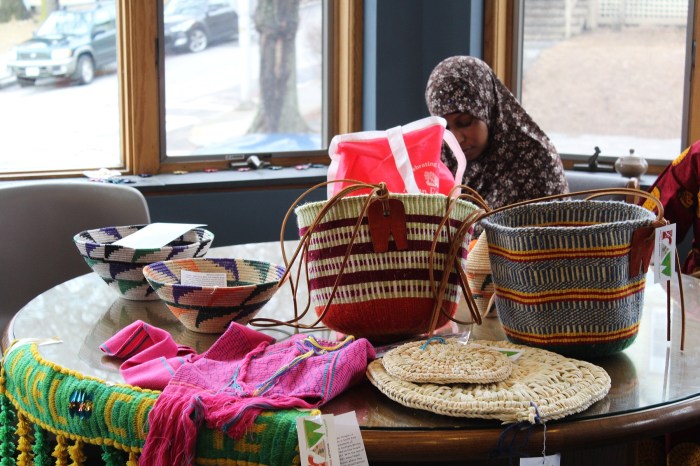A Revere family is desperately searching for its pet parrot, Luna, after the brightly colored bird flew away while the family was preparing for its move to a new home last month.
The loss is expecially painful because Luna was more than just a companion. Belsy Carreno said her 3-year-old son, Milton Tejada Jr., was diagnosed with autism at a young age and often found comfort — and some new interests — through his relationship with Luna, who was part of the family before he was even born. Carreno said the bird acted as an “emotional support” to Milton and the rest of her family. Cageless, the bird often sat on her or her husband Milton’s shoulders, helping the younger Milton to make eye contact and look at faces. Foregoing a cage meant Luna could fly around the house, often to Milton’s wondrous amusement, Carreno said.
The pet also taught Milton some other lessons you might not expect from a bird.
“Luna would eat the same food that my son ate, which would sometimes help him try new food,” Carreno said.
And not bird seed, either: grapes, chocolate milk, and juice were all in the mix.
Now, Carreno said Milton is clearly distressed by his pal’s absence, with the family continuing its search every day to find any sign of the beloved animal.
“He has a routine: every day he checks that everything [at home] is like how he left it before he went to school,” Carreno said of her son. “He discovers something wrong very quickly.”
The bird flew off on July 25, when the family was preparing to move to a new home nearby. Milton’s father, Milton Sr., was carrying some trash with Luna on his shoulder. A sudden sound spooked the bird, who jumped off Milton and flew out of the house. Carreno said the family has canvassed their neighborhood every day, plastering posters throughout the Greater Boston area offering a $2,000 reward to anyone who helps find Luna.
“This parrot means the world to my autistic son,” the flier reads. “Please, please, please help us to find it.
A 2014 study by the Research Center for Human-Animal Interaction found that all kinds of pets may act as “social lubricants” that help children learn to communicate better and demonstrate more social assertiveness. “When I compared the social skills of children with autism who lived with dogs to those who did not, the children with dogs appeared to have greater social skills,” Gretchen Carlisle, research fellow at the Research Center for Human-Animal Interaction at University of Missouri, wrote in the findings of the study she headed. “More significantly, however, the data revealed that children with any kind of pet in the home reported being more likely to engage in behaviors such as introducing themselves, asking for information, or responding to other people’s questions.” Carreno said the family is still holding out hope: Luna was last spotted on Wednesday, Aug. 10, behind the Revere Fire Department on Broadway and Central Avenue.
“The person [who saw her] was very close to Luna, but she flew [away] again,” Carreno said.
If you do spot Luna, you can call (857) 445-3873, text (857) 756-2134, or email 3112milton@gmail.com.
Revere family searches for autistic son’s missing ’emotional support’ parrot

Carreno family





















